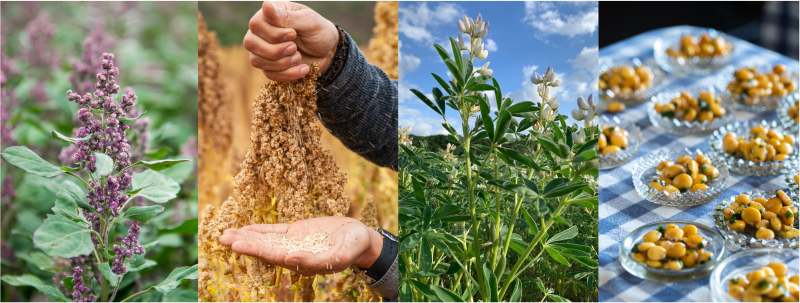Radicle Crops acquires Wageningen UR quinoa breeding program and associated breeding technologies
A strategic leap forward for Radicle Crops
Radicle Crops (RC) is thrilled to announce the acquisition of the quinoa breeding program of Wageningen University and Research (WUR). The transaction covers all of WUR’s quinoa breeding assets, including nine patented saponin-free varieties, associated genetics, and proprietary breeding tools. The acquisition is a significant step in RC’s pursuit to consolidate and broaden its position as a leading supplier of quinoa seed, genetics, and next-generation breeding technologies.
RC’s mission is to make quinoa a widely accessible and available food for all. Quinoa is an exceptional crop species that can contribute to more diverse diets and a healthier planet. It is tolerant to drought and soil salinity and can effectively produce highly-nutritious food on marginal lands. Quinoa is also gluten-free and rich in high-quality proteins; a perfect match for global consumers seeking healthier and more sustainable (plant-based) nutrition.

As the impacts of climate change become starker, quinoa offers hope for greater agricultural resiliency and more nutritious diets. RC is ready to unlock the true genetic potential of quinoa to provide major leaps in productivity, resilience, and climate-adaptiveness.
Purposefully committed to cutting-edge innovation built on excellent science
Since 2019, RC and WUR have been collaborating in quinoa genetics and breeding research, leading to major breakthroughs, including the development of a F1 Hybrid breeding system that has the potential to revolutionize the industry. As part of the acquisition, RC and WUR have committed to extending their successful R&D partnership. This ensures the continuity of a bold and creative approach to quinoa breeding, with Robert van Loo, senior scientist at Plant Breeding WUR, remaining as RC’s chief scientific advisor.
RC will now fully focus on the development of true F1 hybrid varieties by leveraging on the power of data-driven predictive breeding. F1 hybrid varieties promise to be significantly more productive and resilient. In the face of climate-change, these new varieties will help growers worldwide maximize the production of high-quality nutrients per unit resource with the least penalty on our environment.

RC’s alliance with WUR – the world’s leading research institute in plant and agricultural sciences- ensures the continuity of a bold, creative, and frontier-driven approach to quinoa breeding. Over the coming eight years, RC will allocate 800,000 euros in bilateral and public-private projects to foster further cutting-edge innovation in quinoa at WUR. To learn more about ongoing projects with WUR, follow this link: https://radiclecrops.com/news_tki2022/
New commercial horizons
RC is driven by its belief that quinoa can be a catalyst of the next transition of our global food system. By acquiring WUR’s breeding assets, RC can invest in scaling up its operations and innovations to speed up product development. And with ownership of valuable intellectual property, RC can now forge exciting partnerships with leading retail and ingredient companies in the quinoa industry. By offering customized variety development services and sharing its proprietary breeding technologies, RC is well-positioned to extend its international reach and make a significant impact on the world’s food supply. The possibilities are truly limitless!
Want to know more? Get in touch with us!
To learn more about RC’s next strategic steps in quinoa breeding, feel free to contact us. You can also follow us on LinkedIn to stay tuned for more upcoming developments.

